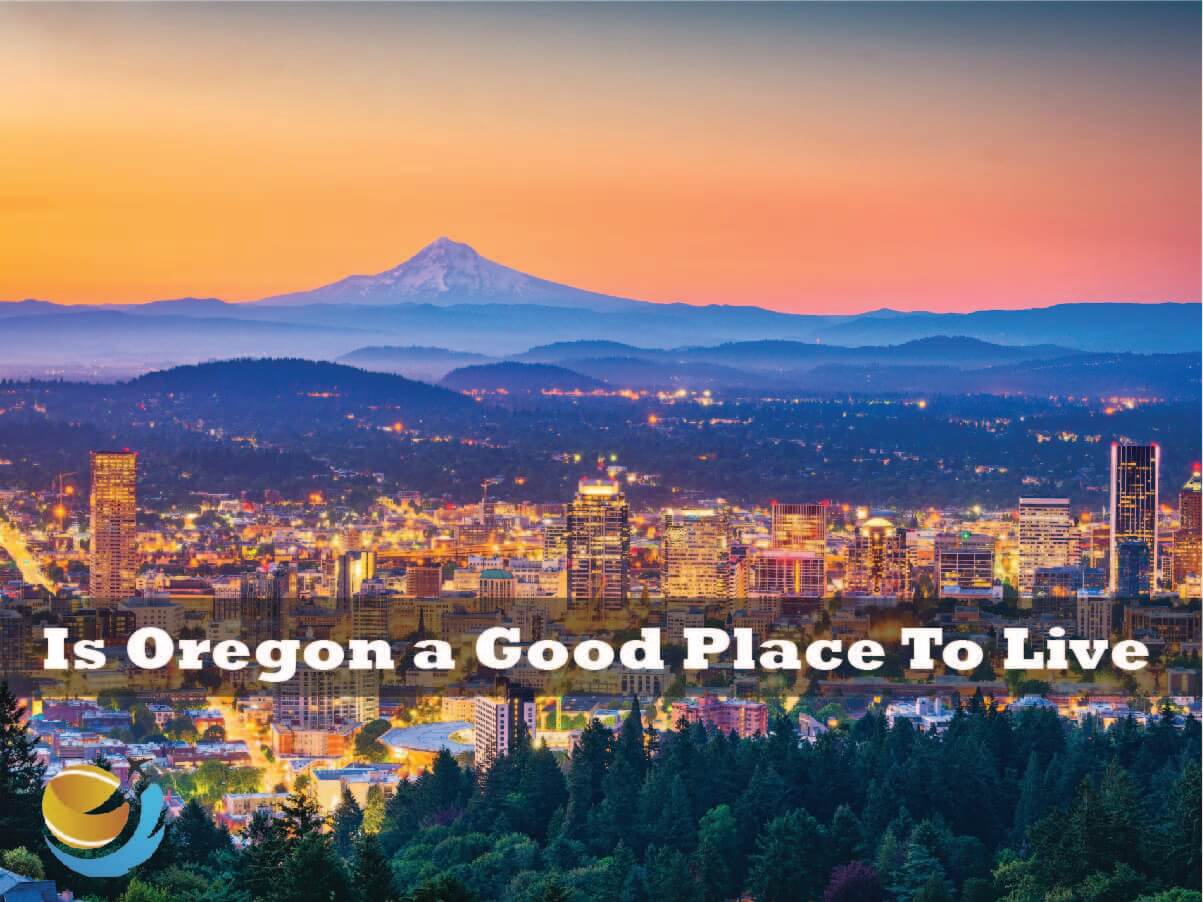Introduction:
Is Oregon a Good Place To Live the answer is yes it is the best place to live. Oregon, located in the Pacific Northwest region of the United States, is known for its diverse landscapes, ranging from rugged coastlines and dense forests to mountainous areas and arid deserts.
With a population of approximately 4.2 million people, it offers a mix of urban and rural living experiences. Major cities like Portland, Eugene, and Salem are known for their vibrant culture and economic opportunities.
This article aims to evaluate whether Oregon is a good place to live. We will explore various factors that contribute to the overall quality of life in the state, including geographic and natural attractions, economic opportunities, quality of life indicators, housing and real estate, lifestyle and culture, transportation and infrastructure, and environmental considerations.
Choosing a place to live is a significant decision that impacts one’s lifestyle, career opportunities, and overall well-being. By providing a comprehensive analysis of Oregon, this article aims to assist individuals and families in making informed decisions about relocating to or residing in the state.
This evaluation will be based on a combination of statistical data, expert opinions, personal testimonials, and case studies. We will also compare Oregon to other states to provide a balanced perspective on its strengths and weaknesses.
The article will cover an overview of Oregon’s geographic and natural attractions, an examination of the quality of life in terms of cost of living, healthcare, education, and safety, an analysis of economic opportunities and the job market, a discussion on housing and real estate trends, insights into the lifestyle and culture of Oregon.
A review of transportation and infrastructure, environmental considerations and sustainability efforts, a summary of pros and cons, and personal testimonials and case studies for real-life perspectives.
Table of Contents
Is Oregon a Good Place To Live
I. Geographic and Natural Attractions
Oregon is renowned for its breathtaking geographic and natural attractions, which offer a diverse array of landscapes and outdoor activities.
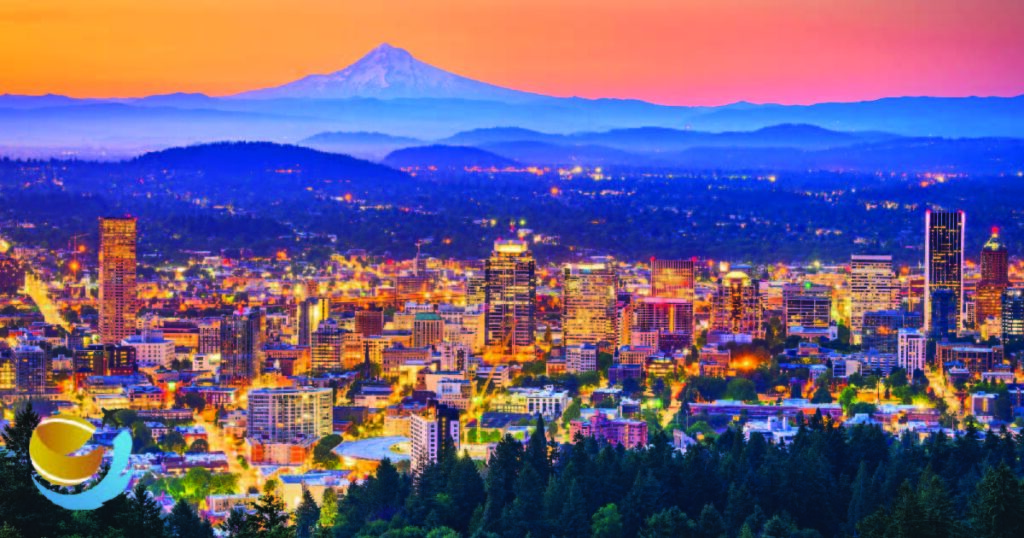
A. Coastline and Coastal Towns
The state boasts a stunning coastline along the Pacific Ocean, featuring dramatic cliffs, sandy beaches, and charming coastal towns. The Oregon Coast is a major draw for both residents and tourists, with destinations like Cannon Beach, known for its iconic Haystack Rock, and the scenic viewpoints of the Samuel H. Boardman State Scenic Corridor.
B. Mountains and National Parks
Inland, Oregon’s diverse geography continues to impress. The Cascade Range runs north to south through the state, offering opportunities for skiing, snowboarding, hiking, and mountaineering. Mount Hood, the highest peak in Oregon, is a popular destination for outdoor enthusiasts, providing year-round recreational activities.
To the south, Crater Lake National Park is home to the deepest lake in the United States, formed in the caldera of an ancient volcano. Its pristine blue waters and surrounding cliffs create a unique and awe-inspiring landscape.
C. Columbia River Gorge
The Columbia River Gorge, located on the northern border of Oregon, is another natural wonder. This canyon of the Columbia River is renowned for its waterfalls, including the famous Multnomah Falls, as well as its hiking trails and windsurfing spots.
The gorge also serves as a gateway to the high desert region of Eastern Oregon, where vast expanses of sagebrush and dramatic rock formations provide a stark contrast to the lush western part of the state.
D. Climate Variations
Oregon’s climate varies significantly across its regions. The western part of the state, including the Willamette Valley where Portland and Eugene are located, experiences a temperate maritime climate with wet winters and dry summers.
This area is known for its fertile soil and is a major agricultural hub, producing everything from wine grapes to hazelnuts. In contrast, Eastern Oregon has a more arid climate, with hot summers and cold winters, creating an environment suitable for ranching and farming.
In summary, Oregon’s geographic and natural attractions are a major highlight for those considering living in the state. From its rugged coastline and majestic mountains to its serene lakes and expansive deserts, Oregon offers a wealth of natural beauty and outdoor recreational opportunities that cater to a wide range of interests and lifestyles.
II. Quality of Life
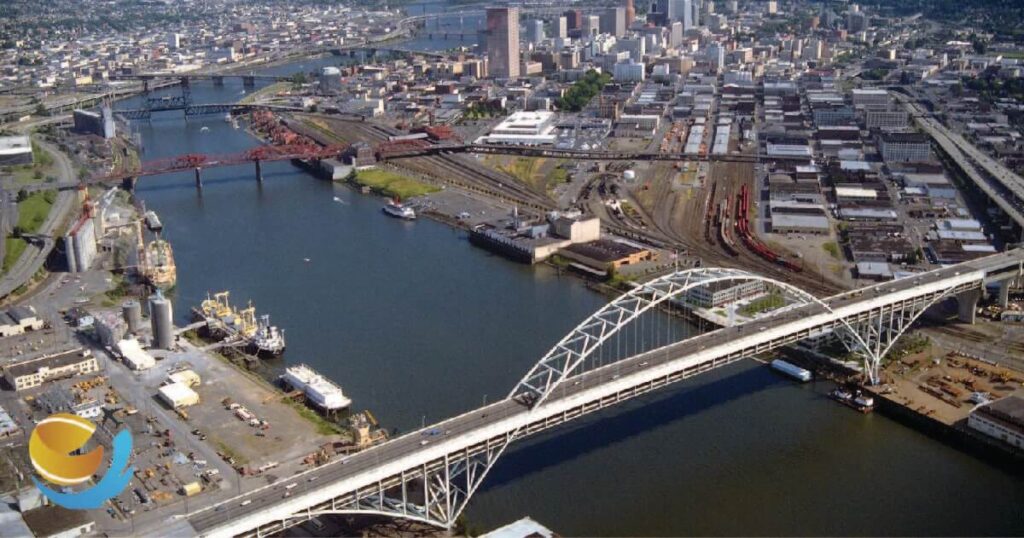
A. Cost of Living: Is Oregon a Good Place To Live
Oregon’s cost of living varies significantly depending on the region. Urban areas like Portland tend to have a higher cost of living compared to smaller towns and rural areas. Housing costs in Portland are notably high, with median home prices above the national average.
However, other areas such as Salem and Eugene offer more affordable housing options. While the overall cost of living in Oregon is higher than the national average, many residents find the quality of life justifies the expense due to the state’s natural beauty, amenities, and opportunities.
B. Healthcare Quality and Availability: Is Oregon a Good Place To Live
Oregon offers a high standard of healthcare with numerous top-rated hospitals and medical facilities. Cities like Portland, Eugene, and Bend have well-regarded medical centers that provide comprehensive healthcare services. The state also emphasizes preventive care and has a strong network of healthcare providers.
Additionally, Oregon has expanded Medicaid under the Affordable Care Act, which has improved healthcare access for low-income residents.
C. Education System: Is Oregon a Good Place To Live
Oregon’s education system includes a mix of public and private institutions that serve students from kindergarten through higher education. The state is home to notable universities such as the University of Oregon in Eugene and Oregon State University in Corvallis.
Public schools in Oregon are generally well-regarded, although funding and resource allocation can vary widely between districts. Oregon also offers various charter and magnet schools that provide specialized education programs.
D. Safety and Crime Rates: Is Oregon a Good Place To Live
Safety is a crucial aspect of quality of life, and Oregon generally boasts low crime rates compared to the national average. While urban areas like Portland experience typical big-city crime levels, most of the state enjoys relatively low crime rates.
Smaller towns and rural areas are particularly known for their safety and tight-knit communities. Efforts to maintain public safety include active community policing and various crime prevention programs.
E. Community and Lifestyle: Is Oregon a Good Place To Live
Oregon is known for its friendly and welcoming communities. The state offers a wide range of lifestyle options, from the vibrant urban life in Portland, with its thriving arts and music scenes, to the more relaxed, nature-oriented lifestyles found in rural and coastal areas.
Oregon residents often value sustainability, outdoor activities, and a healthy work-life balance. This emphasis on community and quality of life contributes to a strong sense of belonging among residents.
In conclusion, Oregon’s quality of life is shaped by its relatively high cost of living, excellent healthcare, diverse educational opportunities, low crime rates, and vibrant community life.
These factors combine to make Oregon an attractive place to live for a wide range of people, from young professionals to retirees seeking a fulfilling lifestyle.
III. Economic Opportunities
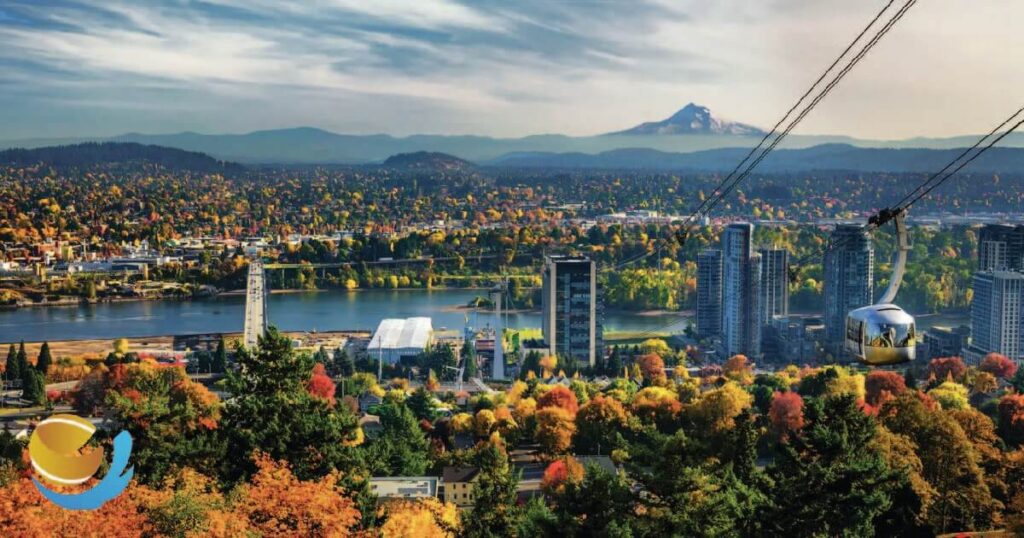
A. Overview of Oregon’s Economy: Is Oregon a Good Place To Live
Oregon’s economy is diverse and robust, driven by several key industries. The state’s economy has grown steadily over the past few decades, supported by a mix of traditional and emerging sectors.
Oregon’s strategic location on the West Coast, with access to international markets via the Port of Portland, further enhances its economic potential.
B. Key Industries: Is Oregon a Good Place To Live
- Technology: The technology sector, often referred to as the “Silicon Forest,” is one of Oregon’s most significant economic drivers. Companies like Intel, Tektronix, and numerous startups contribute to a thriving tech ecosystem, particularly in the Portland metropolitan area. The presence of these companies has spurred job growth and innovation, making Oregon an attractive destination for tech professionals.
- Agriculture: Agriculture plays a vital role in Oregon’s economy, with the state being one of the top producers of various crops, including wine grapes, hazelnuts, and berries. The Willamette Valley is particularly renowned for its vineyards and wineries, which contribute to a burgeoning wine tourism industry.
- Tourism: Tourism is another major industry in Oregon, driven by the state’s natural beauty and outdoor recreational opportunities. Attractions like Crater Lake National Park, Mount Hood, and the Oregon Coast draw millions of visitors each year. The tourism sector supports numerous jobs in hospitality, travel services, and outdoor recreation.
- Manufacturing: Oregon has a diverse manufacturing sector, producing everything from semiconductors to footwear. Companies like Nike, headquartered in Beaverton, are significant employers and contribute to the state’s reputation for high-quality products.
- Forestry and Logging: Oregon’s vast forests support a substantial forestry and logging industry. While this sector has faced challenges due to environmental regulations and market changes, it remains an important part of the state’s economy, particularly in rural areas.
C. Job Market and Unemployment Rates: Is Oregon a Good Place To Live
Oregon’s job market is generally strong, with steady job growth across various sectors. The state’s unemployment rate has historically been close to or below the national average, reflecting its economic resilience.
However, job opportunities can vary significantly by region, with urban areas like Portland offering more diverse employment options compared to rural parts of the state. Oregon also supports workforce development through various programs aimed at improving skills and job readiness, particularly in high-demand fields like technology and healthcare.
D. Average Income Levels: Is Oregon a Good Place To Live
Income levels in Oregon vary by industry and location. The technology sector, in particular, offers some of the highest wages in the state, attracting professionals from across the country. Overall, the median household income in Oregon is slightly above the national average, reflecting the state’s relatively high cost of living.
However, there are disparities in income levels, with urban areas generally offering higher wages compared to rural regions.
In summary, Oregon’s economic opportunities are shaped by its diverse and growing economy, with significant contributions from technology, agriculture, tourism, manufacturing, and forestry. The state offers a strong job market with competitive wages, particularly in its urban centers.
These economic factors, combined with a high quality of life, make Oregon an attractive destination for individuals seeking career growth and stability.
IV. Housing and Real Estate
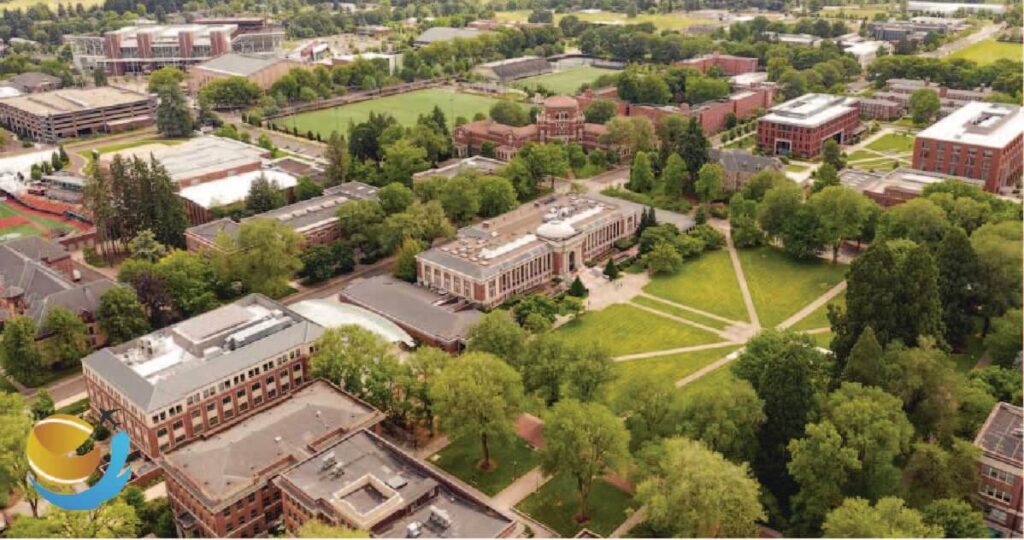
A. Housing Market Trends: Is Oregon a Good Place To Live
Oregon’s housing market has seen significant growth in recent years, driven by an influx of new residents attracted by the state’s natural beauty, quality of life, and economic opportunities.
The demand for housing has led to rising home prices, particularly in urban areas like Portland, Eugene, and Bend. Despite this, there are still regions within the state that offer more affordable housing options.
The market trends also indicate a growing interest in sustainable and energy-efficient homes, reflecting Oregon’s commitment to environmental sustainability.
B. Urban vs. Rural Living: Is Oregon a Good Place To Live
Living in Oregon offers a stark contrast between urban and rural environments, each with its own set of advantages and challenges.
- Urban Living: Cities like Portland, Eugene, and Salem offer a vibrant urban lifestyle with access to amenities such as restaurants, cultural venues, and public transportation. Portland, in particular, is known for its unique neighborhoods, bike-friendly infrastructure, and strong community vibe. However, urban living comes with a higher cost of housing and living expenses. The competitive real estate market in these areas means that buyers and renters need to act quickly to secure desirable properties.
- Rural Living: In contrast, rural areas in Oregon provide a more relaxed lifestyle with larger properties and lower housing costs. Rural living is ideal for those who prefer a closer connection to nature and outdoor activities. These areas offer peace and quiet, but residents may need to travel longer distances for services and amenities that are readily available in urban centers. Additionally, rural properties may offer opportunities for farming, ranching, or simply enjoying expansive natural landscapes.
C. Cost of Housing in Major Cities: Is Oregon a Good Place To Live
The cost of housing in Oregon’s major cities varies considerably:
- Portland: As the largest city in Oregon, Portland has the highest housing costs. The median home price is significantly above the national average, and the rental market is also competitive. Despite this, Portland remains a popular destination due to its dynamic job market, cultural scene, and quality of life.
- Eugene: Eugene offers a more affordable alternative to Portland, with lower median home prices and rental rates. The city is home to the University of Oregon, contributing to a vibrant community with a strong emphasis on education and innovation.
- Bend: Bend has experienced rapid growth and development, leading to rising home prices. Known for its outdoor recreational opportunities, Bend attracts those who enjoy activities like skiing, hiking, and mountain biking. The housing market is competitive, with a mix of single-family homes, condos, and new developments.
- Salem: As the state capital, Salem offers a blend of urban and suburban living with relatively affordable housing compared to Portland and Bend. The city provides a range of housing options, from historic neighborhoods to new subdivisions, making it an attractive choice for families and professionals.
D. Housing Affordability and Challenges: Is Oregon a Good Place To Live
Housing affordability remains a challenge in Oregon, particularly in its most desirable areas. The rising cost of housing has led to concerns about affordability for middle and lower-income residents.
In response, state and local governments have implemented various measures to increase affordable housing availability, such as zoning changes, subsidies for low-income housing projects, and incentives for developers to include affordable units in new developments.
Despite these efforts, the demand for affordable housing often outpaces supply, leading to ongoing challenges for many residents.
In summary, Oregon’s housing and real estate market reflects the state’s overall appeal and growth. While urban areas like Portland, Eugene, and Bend offer vibrant lifestyles and economic opportunities, they come with higher housing costs.
Rural areas provide more affordable options and a closer connection to nature. Addressing housing affordability challenges remains a priority to ensure that Oregon can accommodate its growing population while maintaining its high quality of life.
V. Lifestyle and Culture
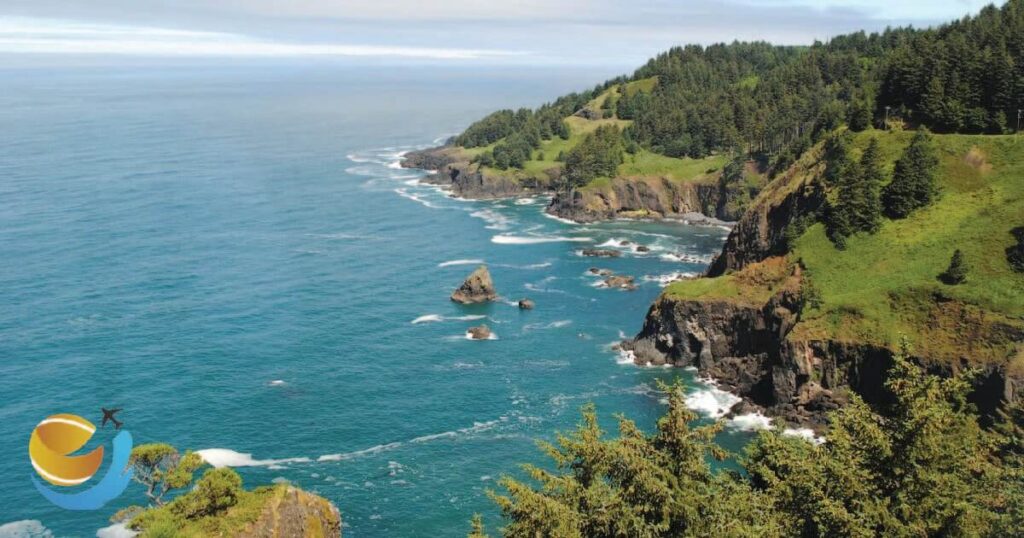
A. Cultural Diversity and Community Life: Is Oregon a Good Place To Live
Oregon is celebrated for its cultural diversity and strong sense of community. The state attracts people from various backgrounds, contributing to a rich tapestry of cultural influences. This diversity is reflected in Oregon’s festivals, events, and community gatherings that celebrate different cultures and traditions.
Cities like Portland are known for their inclusive and progressive atmosphere, promoting social justice and community engagement. Small towns and rural areas also foster tight-knit communities where neighbors often know and support each other.
B. Arts, Music, and Food Scene: Is Oregon a Good Place To Live
Oregon has a vibrant arts and music scene that enhances the quality of life for its residents. Portland, in particular, is a hub for creative expression, with numerous art galleries, theaters, and live music venues.
The city hosts several annual arts festivals, such as the Portland Art Museum’s contemporary art exhibitions and the Portland Jazz Festival. Eugene and Ashland also contribute to the state’s cultural landscape, with the Oregon Shakespeare Festival in Ashland being a notable highlight.
The food scene in Oregon is equally impressive, known for its farm-to-table philosophy and emphasis on locally sourced ingredients. Portland’s culinary landscape includes a wide array of food carts, award-winning restaurants, and craft breweries.
The Willamette Valley is famous for its wineries, producing some of the best Pinot Noir in the world. Farmers’ markets are prevalent throughout the state, offering fresh, local produce and fostering a connection between consumers and farmers.
C. Outdoor Activities and Recreational Opportunities
Oregon’s diverse landscapes provide endless opportunities for outdoor activities and recreation. The state’s natural beauty is a playground for those who enjoy hiking, biking, fishing, skiing, and water sports.
The Cascade Range, including popular spots like Mount Hood and the Three Sisters, offers excellent hiking and climbing opportunities. The Oregon Coast is perfect for beachcombing, whale watching, and surfing, while the numerous rivers and lakes throughout the state provide ample fishing and boating opportunities.
Oregon is also home to an extensive network of state parks and recreational areas that cater to a variety of outdoor interests. Silver Falls State Park, with its famous Trail of Ten Falls, is a favorite among hikers.
Crater Lake National Park, with its deep blue lake and surrounding wilderness, is another must-visit destination for nature enthusiasts. In winter, ski resorts like Mount Bachelor and Hoodoo attract skiers and snowboarders from all over the region.
D. Sports and Entertainment: Is Oregon a Good Place To Live
Sports and entertainment play a significant role in Oregon’s lifestyle. The state is home to professional sports teams such as the Portland Trail Blazers (NBA) and the Portland Timbers (MLS), which enjoy strong local support and add to the state’s dynamic entertainment scene.
College sports are also popular, with teams like the Oregon Ducks and the Oregon State Beavers drawing passionate fans.
In addition to sports, Oregon hosts a variety of entertainment options, including live theater, concerts, and film festivals. The Portland International Film Festival and the Oregon Bach Festival are just a few examples of the state’s commitment to providing diverse and high-quality entertainment options for residents and visitors alike.
E. Environmental Sustainability: Is Oregon a Good Place To Live
Oregon’s lifestyle is deeply intertwined with its commitment to environmental sustainability. The state is a leader in green initiatives, from extensive recycling programs to the promotion of renewable energy sources. Residents often prioritize sustainable living practices, such as using public transportation, cycling, and supporting local, eco-friendly businesses.
This environmental consciousness is a defining characteristic of Oregon’s culture, attracting like-minded individuals who value sustainability and conservation.
In conclusion, Oregon offers a rich lifestyle and culture characterized by its cultural diversity, thriving arts and music scenes, exceptional food culture, abundant outdoor and recreational opportunities, vibrant sports and entertainment options, and a strong commitment to environmental sustainability.
These factors combine to create a unique and fulfilling living experience for residents, making Oregon an appealing place for those seeking a high quality of life and a vibrant, inclusive community.
VI. Transportation and Infrastructure
Oregon’s transportation and infrastructure support the state’s diverse population and its economic activities, emphasizing accessibility, sustainability, and connectivity.
A. Public Transportation Options: Is Oregon a Good Place To Live
Major urban centers like Portland and Eugene offer extensive public transportation networks. TriMet operates Portland’s light rail (MAX), streetcar lines, and bus services, providing convenient access to downtown areas, suburbs, and the airport.
Eugene’s Lane Transit District (LTD) offers bus services that connect various neighborhoods and the University of Oregon campus. These public transit systems help reduce traffic congestion and promote sustainable transportation options for residents and visitors alike.
B. Road Conditions and Traffic: Is Oregon a Good Place To Live
Oregon’s road infrastructure includes a network of highways, interstates, and local roads that facilitate regional and interstate travel. While urban areas may experience traffic congestion during peak hours, the state generally maintains well-maintained roads and highways.
The Oregon Department of Transportation (ODOT) oversees road maintenance and improvements, focusing on enhancing safety and reducing environmental impacts. Seasonal factors, such as winter weather conditions in mountainous regions, can occasionally affect road travel and require additional precautions.
C. Accessibility and Commute Times: Is Oregon a Good Place To Live
Accessibility within Oregon’s urban areas varies, with larger cities like Portland offering multiple transportation options that reduce reliance on personal vehicles. Commute times can vary significantly depending on location and mode of transportation.
Urban residents often have shorter commute times due to proximity to employment centers and public transit options, while rural residents may face longer commute times and rely more on personal vehicles for daily travel.
D. Infrastructure Development and Sustainability
Oregon prioritizes infrastructure development that supports sustainable growth and environmental conservation. Investments in green infrastructure, such as bike lanes, pedestrian pathways, and electric vehicle charging stations, promote alternative modes of transportation and reduce carbon emissions.
The state also invests in renewable energy projects and sustainable building practices to minimize environmental impact and enhance resilience against climate change impacts.
E. Future Transportation Initiatives: Is Oregon a Good Place To Live
Looking forward, Oregon continues to explore innovative transportation initiatives to improve mobility and address future challenges. This includes expanding public transit services, integrating smart technology into transportation systems, and promoting mixed-use developments that encourage walking and biking.
Initiatives to reduce greenhouse gas emissions and improve air quality are also integral to Oregon’s long-term transportation planning efforts.
In summary, Oregon’s transportation and infrastructure systems are designed to support economic growth, enhance quality of life, and promote sustainability.
From efficient public transit options in urban areas to well-maintained road networks connecting diverse landscapes, Oregon strives to provide accessible and environmentally responsible transportation solutions for residents and visitors alike.
VII. Environmental Considerations
Oregon is celebrated for its proactive stance on environmental conservation and sustainability, encompassing policies, practices, and initiatives that prioritize preserving natural resources and minimizing ecological footprint.
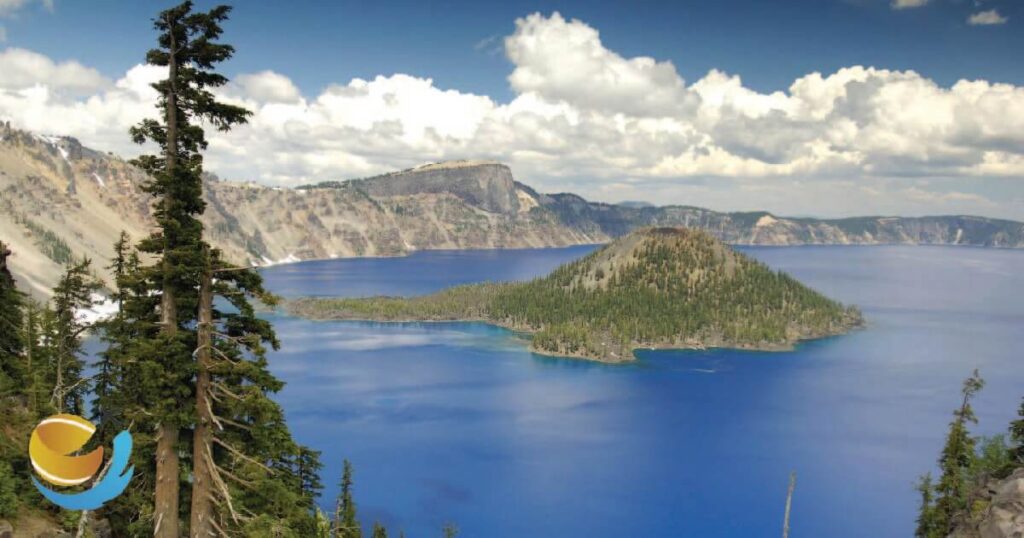
A. Conservation of Natural Habitats: Is Oregon a Good Place To Live
Oregon’s diverse landscapes, from its rugged coastline to its lush forests and high desert regions, are protected through a network of state parks, national forests, and wildlife refuges. These areas not only provide recreational opportunities but also safeguard critical habitats for native species.
Examples include the Columbia River Gorge National Scenic Area and the Cascade-Siskiyou National Monument, which preserve biodiversity and support ecological resilience.
B. Renewable Energy Leadership: Is Oregon a Good Place To Live
- Hydroelectric Power: Oregon harnesses its abundant water resources to generate a significant portion of its electricity from hydroelectric power. Dams along major rivers like the Columbia and Willamette Rivers contribute to clean energy production while managing water flow for irrigation and flood control.
- Wind and Solar Energy: In addition to hydroelectricity, Oregon has made strides in developing wind and solar energy projects. The state’s windy coast and sunny eastern regions are particularly conducive to wind turbines and solar panels, respectively, further diversifying its renewable energy portfolio.
C. Sustainable Practices and Policies: Is Oregon a Good Place To Live
- Environmental Regulations: The Oregon Department of Environmental Quality (DEQ) enforces stringent regulations to maintain air and water quality standards and manage hazardous waste. These regulations ensure that industrial activities and development projects adhere to environmental protection laws, reducing pollution and safeguarding public health.
- Land Use Planning: Oregon is a pioneer in land use planning with measures such as urban growth boundaries and zoning laws that promote compact development and protect agricultural lands and natural habitats. These efforts aim to curb urban sprawl, preserve open spaces, and maintain a balance between development and conservation.
D. Climate Action and Resilience: Is Oregon a Good Place To Live
- Climate Change Mitigation: Oregon is committed to reducing greenhouse gas emissions through initiatives targeting transportation, energy efficiency, and carbon sequestration. The state has set ambitious goals to achieve carbon neutrality by mid-century, supported by incentives for clean energy adoption and emissions reduction strategies.
- Adaptation Strategies: Recognizing the impacts of climate change, Oregon implements adaptation strategies to enhance resilience against wildfires, droughts, and other climate-related risks. This includes forest management practices, water conservation measures, and infrastructure improvements designed to withstand extreme weather events.
E. Community Engagement and Education: Is Oregon a Good Place To Live
Oregon encourages public involvement in environmental stewardship through education programs, community partnerships, and volunteer opportunities.
Organizations and local governments collaborate on initiatives ranging from watershed restoration projects to climate action campaigns, fostering a sense of environmental responsibility and promoting sustainable behaviors among residents.
In summary, Oregon’s environmental considerations reflect its commitment to preserving natural ecosystems, promoting renewable energy development, implementing sustainable practices, mitigating climate change impacts, and engaging communities in conservation efforts.
These efforts contribute to Oregon’s reputation as a leader in environmental stewardship and a desirable place to live for those who value a healthy environment and sustainable living practices.
VIII. Pros and Cons of Living in Oregon
A. Pros: Is Oregon a Good Place To Live
- Natural Beauty: Oregon is renowned for its stunning natural landscapes, including the rugged coastline, majestic mountains, lush forests, and picturesque rivers. Residents enjoy abundant outdoor recreational opportunities such as hiking, skiing, surfing, and exploring national parks.
- Quality of Life: Oregon offers a high quality of life with access to diverse cultural amenities, vibrant arts scenes, and a strong sense of community. Cities like Portland and Eugene are known for their progressive values, excellent healthcare facilities, and educational institutions.
- Environmental Consciousness: The state prioritizes environmental conservation and sustainability, with initiatives promoting renewable energy, green building practices, and land use planning that preserves natural habitats and agricultural lands.
- Thriving Economy: Oregon’s economy is dynamic and diverse, driven by industries such as technology, manufacturing, agriculture, and tourism. The state’s strategic location on the West Coast enhances its economic opportunities and international trade relations.
- Cultural Diversity: Oregon embraces cultural diversity, fostering inclusive communities and celebrating different traditions through festivals, arts events, and culinary experiences. This cultural richness adds to the state’s vibrant social fabric.
B. Cons: Is Oregon a Good Place To Live
- Cost of Living: Oregon’s cost of living is higher than the national average, particularly in urban areas like Portland and Bend. Housing costs have risen significantly in recent years, making it challenging for some residents to afford housing, especially in desirable locations.
- Weather: Oregon’s weather can be a mixed bag, with wet winters in the western part of the state and hot summers in the eastern regions. The coastal areas are prone to fog and rain, while the inland valleys experience temperature extremes.
- Traffic Congestion: Urban areas like Portland experience traffic congestion during peak hours, impacting commute times and air quality. Public transportation options are available but may not fully alleviate congestion issues.
- Natural Disasters: Oregon is susceptible to natural disasters such as earthquakes, wildfires, and occasional flooding. While efforts are made to mitigate these risks, residents should be prepared for potential emergencies and adhere to safety guidelines.
- Competitive Job Market: While Oregon offers diverse job opportunities, certain industries may be competitive, particularly in tech hubs like Portland. Job seekers may face challenges in securing employment in highly sought-after sectors.
In conclusion, living in Oregon offers a blend of natural beauty, cultural richness, economic opportunities, and environmental consciousness. However, potential residents should consider factors such as the cost of living, weather variations, traffic issues, natural disaster risks, and job market competitiveness when deciding whether Oregon is the right place for them to live.
IX. Personal Testimonials and Case Studies
A. Testimonials from Residents: Is Oregon a Good Place To Live
- Sarah L., Portland: “Moving to Portland was my best decision. I love the city’s vibrant arts scene, delicious food options, and proximity to nature. Hiking in the Columbia River Gorge and exploring the Oregon Coast have been incredible experiences. The community here is so welcoming, and I’ve made lifelong friends.”
- David M., Bend: “Living in Bend has been a dream come true for my family. We enjoy outdoor activities year-round, from skiing on Mount Bachelor in the winter to hiking and mountain biking in the summer. The small-town feel is comforting, and Bend’s growing economy has provided me with great job opportunities in the tech industry.”
- Emily T., Eugene: “Eugene’s laid-back vibe and focus on sustainability drew me in. I appreciate the emphasis on locally sourced food and the strong sense of community. The University of Oregon offers cultural events and sports activities that enrich our lives. Plus, the Willamette Valley’s wine country is just a short drive away!”
B. Case Studies of Relocation Experiences: Is Oregon a Good Place To Live
- The Smith Family: After relocating from California to Portland, the Smith family found a welcoming community and a higher quality of life. Mr. Smith secured a job in Portland’s tech sector, while Mrs. Smith appreciated the family-friendly neighborhoods and excellent schools for their children. They enjoy weekends exploring nearby parks and attending local events.
- Maria R., Recent Graduate: Maria moved from the Midwest to Eugene for graduate school at the University of Oregon. She was impressed by the city’s focus on sustainability and access to outdoor activities. Maria found part-time work at a local nonprofit, which aligned with her passion for environmental advocacy. She plans to stay in Oregon after graduation due to the state’s opportunities and lifestyle.
- John and Lisa H., Retirees: Seeking a peaceful retirement, John and Lisa chose Ashland for its mild climate, cultural offerings, and proximity to nature. They enjoy attending the Oregon Shakespeare Festival and exploring hiking trails in the nearby Siskiyou Mountains. The community’s active senior programs and healthcare facilities have made their transition smooth and enjoyable.
These personal testimonials and case studies highlight the diverse experiences and benefits of living in Oregon, ranging from career opportunities and outdoor recreation to community engagement and cultural richness.
Whether seeking a vibrant urban lifestyle or a serene retirement destination, Oregon offers something for everyone seeking a high quality of life amidst natural beauty and community spirit.
Conclusion Of Is Oregon a Good Place To Live:
Oregon presents a compelling case as a desirable place to live, offering a unique blend of natural beauty, cultural vibrancy, economic opportunities, and environmental stewardship.
Throughout this exploration of Oregon’s attributes, it becomes evident that the state caters to a wide range of lifestyles and preferences, from the bustling urban centers of Portland and Eugene to the tranquil landscapes of Bend and Ashland.
The state’s commitment to sustainability and conservation underscores its dedication to preserving its natural treasures, from the rugged coastline to the Cascade Range and high desert plains. Oregonians benefit from a high quality of life, supported by excellent healthcare, educational institutions, and a strong sense of community that fosters inclusivity and cultural diversity.
While Oregon boasts numerous advantages, including a thriving economy driven by technology, manufacturing, agriculture, and tourism, it also faces challenges such as housing affordability and traffic congestion in urban areas.
These considerations underscore the importance of thoughtful planning and community engagement to sustain Oregon’s growth while preserving its unique character and environment.
In conclusion, Oregon stands as a beacon of opportunity and natural splendor in the Pacific Northwest, attracting residents and visitors alike with its scenic landscapes, progressive values, and abundant recreational opportunities.
Whether seeking adventure in the great outdoors, pursuing career aspirations, or enjoying a rich cultural tapestry, Oregon continues to captivate hearts and minds as a place where living well aligns with living responsibly.
Related Articles:
Things to Do in Waco: 15 Amazing Experience
Best Time to Visit Asheville NC: Complete Guide

